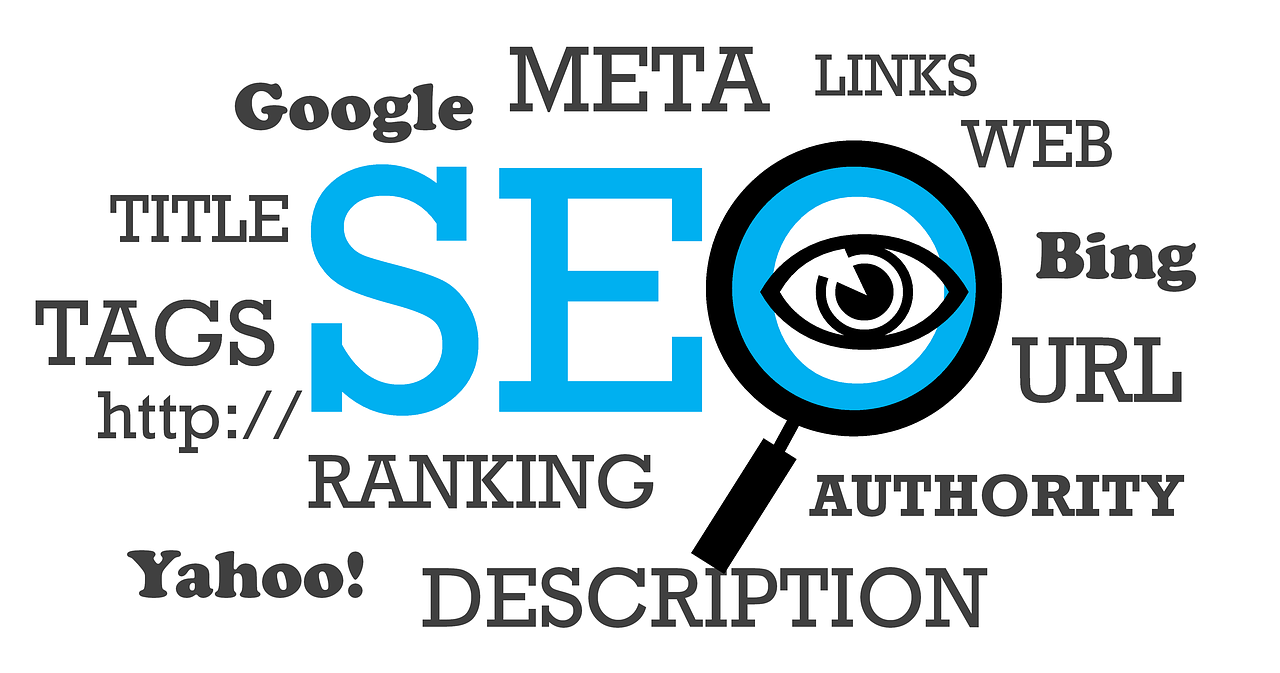Does
Your Domain
Affect
SEO?
Does a domain affect SEO in any way? That is the question of this article that we will be examining together.
Google has over 200 search ranking factors. These factors help Google determine where a website should rank on its massive search engine. As you can imagine, domain aspects are included in those factors.
Asking if your domain affect SEO factors is an excellent question to ask. There are indeed several factors associated with your domain name. But some factors aren’t considered ranking factors at all.
I am creating this article to help ensure that you have chosen the best domain name for your brand or business and show how you can apply SEO to help market and position your content on search engines.
Does the Age and History of a Domain Affect SEO?
Yes and no is the short answer to this question.
The longer answer is that yes, the history of your domain can impact SEO, but the age of the domain doesn’t always matter to search engines.
If your domain name has a history of being used for malicious purposes such as spam or scamming people, then the domain name may get a bad ranking signal from Google and other search engines. Therefore, it’s best to research the history of your domain name. A simple Google search for the domain can help, but other sites like the Wayback Machine are best for this purpose.
Google has stated that some domains with a previous bad history may fix themselves over time as the algorithms continue to monitor the content of what’s now on the domain name. However, most SEO and marketing experts will suggest you use a domain name without a bad history to be safe.
Does the actual age of the domain affect SEO in any way? The short answer is no. It’s the history that Google is concerned about, not the age. If you have a domain name on a parked page for ten years and then decided to add content to it, you’re not going to see a significant increase in Google search ranking. So you have to use the same tactics everyone else does to rank.
The history of your domain name does matter, but the age doesn’t matter as much as you probably think it would.
How about the Top Level Domain Choice?
Now you might be wondering if the TLD of a domain name would impact SEO.
The TLD stands for Top Level Domain. It’s the extension used after the domain name keywords; for example, the “.com” portion of the domain name is the TLD or Top Level Domain.
So, does the TLD of the domain affect SEO tactics and strategies? The TLD has no real impact on Google search ranking. However, it does have an impact on general marketing and growth effects.
The only way the TLD would impact search rankings is if you use a free hosting service that is known to spam or scam. A free hosting service usually puts your website on a subdomain (example: your-site.freehosting.xyz), and if the primary name of that subdomain has a bad history, then your site could be impacted along with it.
For general marketing and growth concerns, choosing a “.com” as the TLD for your domain name is best. The “.com” is the most widely used TLD. Everyone can remember “.com” more than any other TLD. There are new extensions out there, including “.blog” and “.store.” These aren’t bad to use. They’ll still work. But many people are still used to adding “.com” to the end of domain names. That issue may come up with the memory of your domain name. That’s where the main problem is.
It is recommended to get a domain name using the “.com” extension for general marketing a memory concerns. But the question if the TLD of the domain affect SEO tactics or not isn’t anything to worry about unless the domain name has a bad history.
The Domain Name Itself
Do the keywords used in the domain affect SEO and search engine ranking?
It may or may not, depending on the situation.
When choosing a good domain name, you want to select keywords relevant to your niche. For example, if you’re going to make a blog about dog food reviews, you might register DogFoodReviews.com or DogFoodBlog.com. Either domain name could quickly signal search engines and people that the website will be about dog food reviews.
But does a non-relevant set of keywords in a domain affect SEO and ranking?
Not always, but it could. My domain name is ShawnGossman.com. My blog is about digital marketing, social media, content, and SEO. But the words “Shawn” and “Gossman” have no relation to those topics whatsoever. It’s my name. That’s what those words mean. But I am developing my online expertise in those topics using that common name all around the internet, focusing on those topics.
If you’re using a domain name for content that isn’t relevant to the domain’s keywords but you’re branding that domain to those topics, it’s okay. It isn’t going to have an impact on your SEO.
But if you’re using a domain name with keywords that are not relevant and are not being branded to the content you infuse into your website, then it could have a ranking factor. For example, using the domain name FishTankBlog.com as a store where you sell used tires could impact your SEO because it isn’t relevant and cannot be branded with the store.
The best choice for your domain name is to choose keywords that directly relate to the content or even your name if you want to brand yourself as an expert on your content topics.
Does Domain Authority Affect SEO?
Everyone always asks this question. Will the authority of the domain affect SEO and ranking?
The answer is a BIG NO.
Domain Authority is NOT a Google search rank factor. How so? Because Google didn’t create Domain Authority. It was created by Moz, a third-party SEO expertise website that has no association with impacting the algorithms of Google.
Domain Authority is a score that Moz can predict concerning your website to show how well it may rank on Google. It isn’t precise and shouldn’t ever be considered a search ranking factor. But that’s not to say it isn’t good. On the contrary, domain Authority is an excellent tool for helping you do better with search engine optimization.
You should always listen to Google when it comes to advise about how to rank on their search engine.
But it’s also recommended to listen to bloggers and third-party experts who know how to optimize for Google and understand digital marketing. Google even recommends this. So if tools like Domain Authority are created to help you know how to rank better, you should take advantage of them.
Domain Authority is an excellent tool for helping you rank on Google, but it doesn’t exactly become a consideration for the Google search ranking factors.
And that concludes this article about how different issues of a domain affect SEO practices and ranking factors associated with Google. Now that you know the answers to these questions, you can start utilizing the strategies mentioned above to make your website rank better in search engines. If you enjoyed reading this article and would love to see more SEO tips, follow me on Twitter for daily tweets about SEO, marketing, and more.
About the Author
Shawn Gossman has created content, blogged, ran online communities, and shared a passion for digital marketing for over twenty years. Shawn believes the best way to help content creators, businesses, brands, and marketers is to give away more than you sell. The same advice is recommended for the readers that follow this blog. Shawn also offers a variety of services for extra help in the area of content creation, blogging, forums, and digital marketing. Learn more about Shawn Gossman by clicking here.
Grow your online brand with exclusive tips from me sent right to your inbox!


